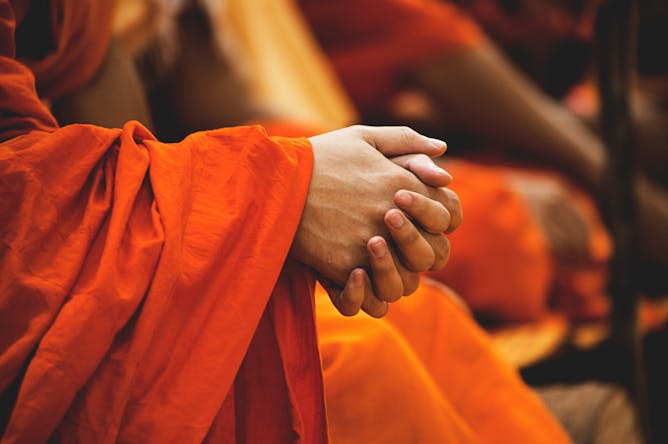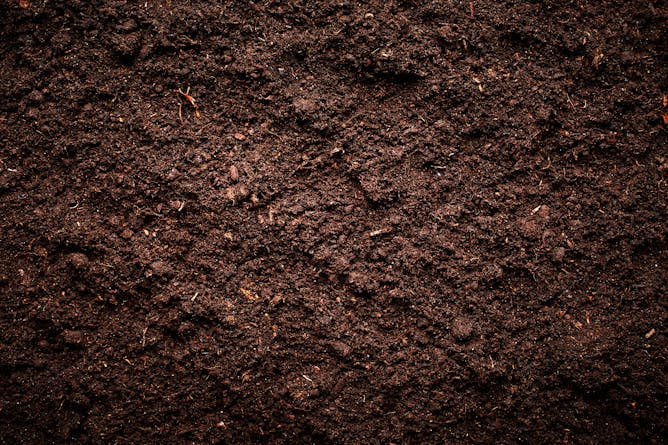|
Joel Lexchin has been writing about pharmaceutical policy issues for 30 years and has penned more than 15 articles for us – all of which have raised important questions about Big Pharma. Today in The Conversation Canada, the professor of family and community medicine at the University of Toronto brings to light another important issue: the potential conflicts of interest among panelists who serve on Health Canada’s scientific advisory committees on prescription drug policies.
A number of politicians and political scientists have weighed in on Québec’s controversial Bill 21, but today we have a thoughtful analysis by religious scholar David Pfrimmer of Wilfrid Laurier University. He says that rather than protecting French culture and safeguarding the public against religious coercion, the proposed law “may enact a new dominant and coercive state-directed civil religion.”
The Royal Mint recently released a coin intended to note a significant anniversary for LGBTQ rights – the 50th anniversary of legislation that removed some same-sex acts from the Criminal Code. Elise Chenier of Simon Fraser University looks back at some of the key moments in the struggle for gay and lesbian rights over the last half century.
And finally…we leave you with an ode to dirt, or, to be more specific, soil. Derek Lynch of Dalhousie University writes about the different facets of soil that reveal a complex and fascinating cultural and evolutionary history.
Regards,
|

Research shows that six of 11 Health Canada scientific advisory committees had a majority of members with a direct or indirect financial interest.
(Shutterstock)
Joel Lexchin, University of Toronto
Health Canada must be unbiased and it must be seen to be unbiased -- so that Canadians get the best possible value out of prescription drugs.
|

Honouring religious freedom and behaving faithfully in public not only protect the rights of individuals but also safeguard the integrity of democratic governments.
Peter Hershey/Unsplash
David Pfrimmer, Wilfrid Laurier University
Respecting religious freedom not only protects the rights of individuals, it safeguards the integrity and accountability of democratic governments.
|

The first gay liberation protest in Canada in 1971 in Ottawa in the pouring rain. Centre: Toronto Gay Action members Brian Waite (left) with Andre Ouellette (right). George Hislop, is on the extreme right.
Jearld Frederick Moldenhaue
Elise Chenier, Simon Fraser University
Early gay liberation activists paved the way for today's equity policies
|

The memories retained by soil contain countless records, including a history of human encounters with the land.
Shutterstock
Derek Lynch, Dalhousie University
Understanding the different facets of soil reveals a complex and fascinating cultural and evolutionary history.
|

shutterstock.
Joelle Basque, Université TÉLUQ ; Nicolas Bencherki, Université TÉLUQ
L'hésitation face à la vaccination relève d’enjeux sociaux, voire identitaires. Il faut donc proposer de nouvelles pistes d'interventions, comme par exemple, former des influenceurs.
|
Environment + Energy
|
-
Jonathan Bamber, University of Bristol; Michael Oppenheimer, Princeton University
Sea levels could rise by two metres by 2100, sparking a refugee crisis unlike anything the world has ever seen.
|
|
Culture + Society
|
-
Rachel Mikva, Chicago Theological Seminary
An expert explains that many of the foundational Jewish texts assert that a fetus does not attain the status of personhood until birth.
|
|
Arts
|
-
Eric Forcier, Swinburne University of Technology; Lisa M. Given, Swinburne University of Technology
Fan culture is thriving in Westeros. Although HBO's Game of Thrones has ended, fans will ensure that the show lives on (and changes) across multimedia platforms, long into the future.
|
|